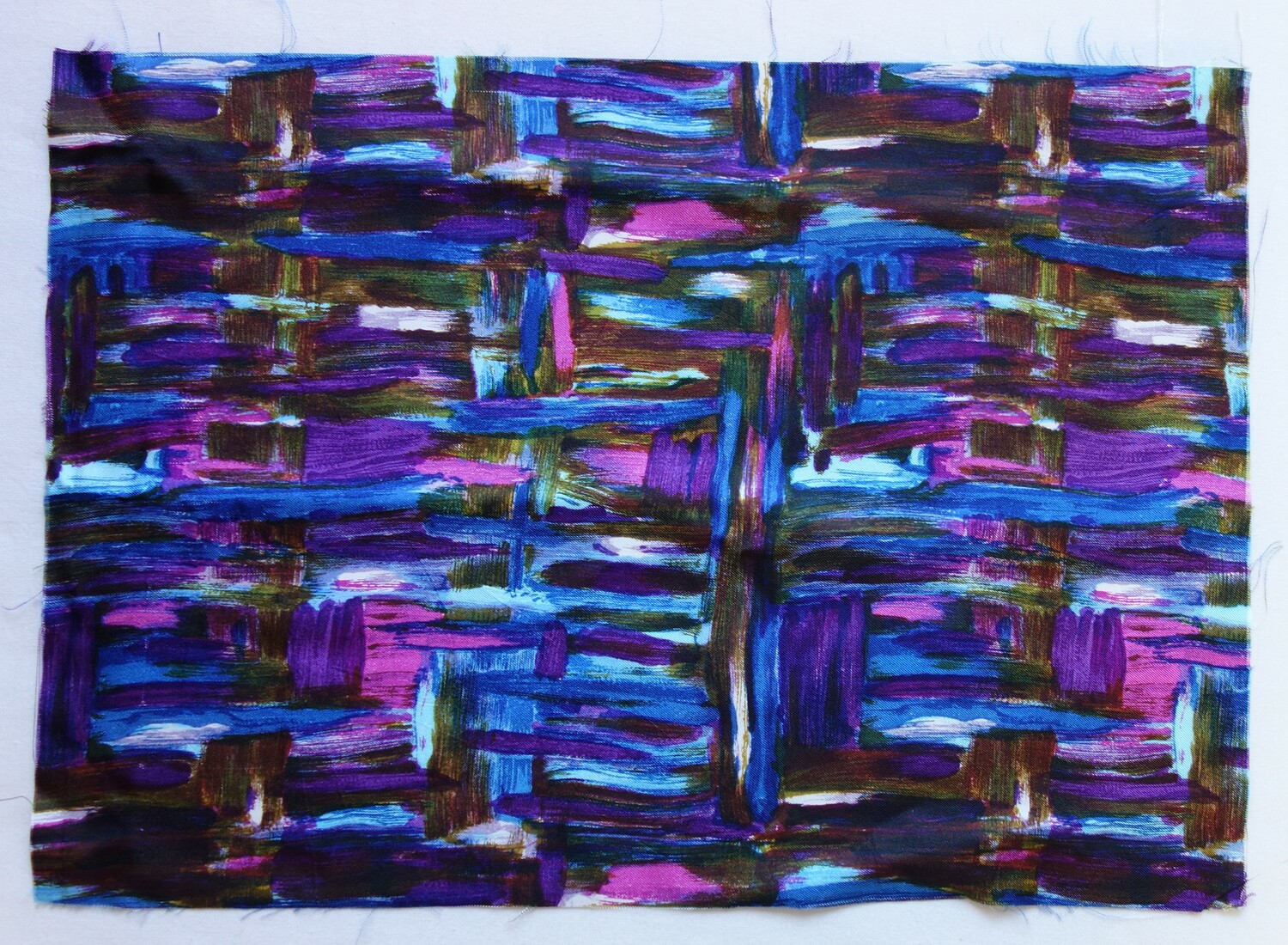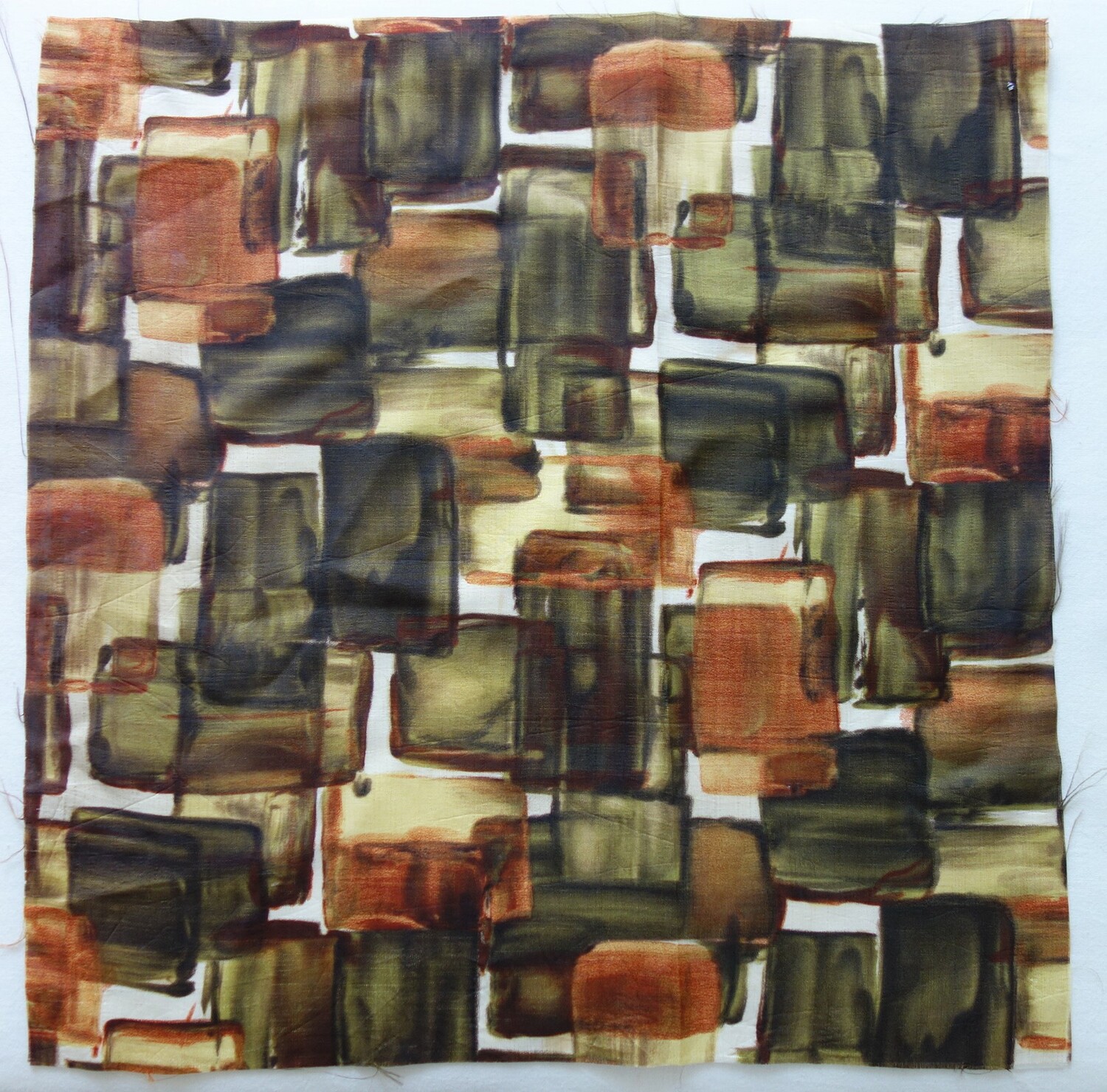On Saturday, 28 March 2020, Gillian Vogelsang wrote:
Three years ago, the TRC in Leiden was given a collection of books, postcards, garments and textiles by Pepin van Rooijen in Amsterdam. Also included was a large number of woven, printed and embroidered textile samples that used to belong to the French artist and designer, Professor Yves Cuvelier (1913-2005), who was closely involved with the Parisian fashion industry in the decades after the Second World War. Much of the information below was graciously provided by Yves Cuvelier's son, Antoine Cuvelier.
 Cloth sample from the 1950's, initially collected by Yves Cuvelier (TRC 2020.1190).
Cloth sample from the 1950's, initially collected by Yves Cuvelier (TRC 2020.1190).
Yves Cuvelier and his (second) wife Geneviève Cuvelier (neé Geneviève Dupuis; she died in 2012) created and ran "Creations et Editions Cuvelier”, a company that was set up just after the war and focused on the design of furnishing and sewing textiles. 'Les Créations Cuvelier' was especially successful in the 1950’s and 1960’s. His creations were, among others, used for the Caravelle aeroplane, and the first class furnishing of the Le France liner. The firm also experimented with technological developments, creating colourfast dyes. Cuvelier's designs are characterised by their pure tones, generally being highlighted with black. His designs are often inspired by nature, but he also used geometric motifs. He experimented with ikat textiles, by printing the threads before weaving the textiles.
With his third wife, Monika von Venningen, he started a new enterprise by collecting thousands of textiles, with the idea of using old designs to create new ones. Over the years, the collection came to include hundreds of thousands of pieces, glued onto paper. These acted as inspiration and a guide for fashion designers and others. Following the death of Yves Cuvelier, most of the pieces in the collection were acquired by a designer in Japan who wanted to use the textiles to inspire Japanese textile designers. The rest was sold to various people in Europe and America.
 Cloth sample from the 1950's, initially collected by Yves Cuvelier (TRC 2020.1215).
Cloth sample from the 1950's, initially collected by Yves Cuvelier (TRC 2020.1215).
Pepin acquired part of the collection with the aim of using them to illustrate a series of textile and fashion books. He later moved to another form of publishing and very kindly gave the textiles to the TRC Leiden. We believe there are c. 7000 textiles in the group given to the TRC and over the last few years we have been slowly cataloguing and photographing them (currently over 3000 of the pieces are accessible online). The current corona virus epidemic means that it is possible to speed up this process.
The Cuvelier/Pepin collection of the TRC is a valuable and fascinating source of information about mid-20th century textile trends and we will be adding more details about other aspects of this intriguing collection shortly.










